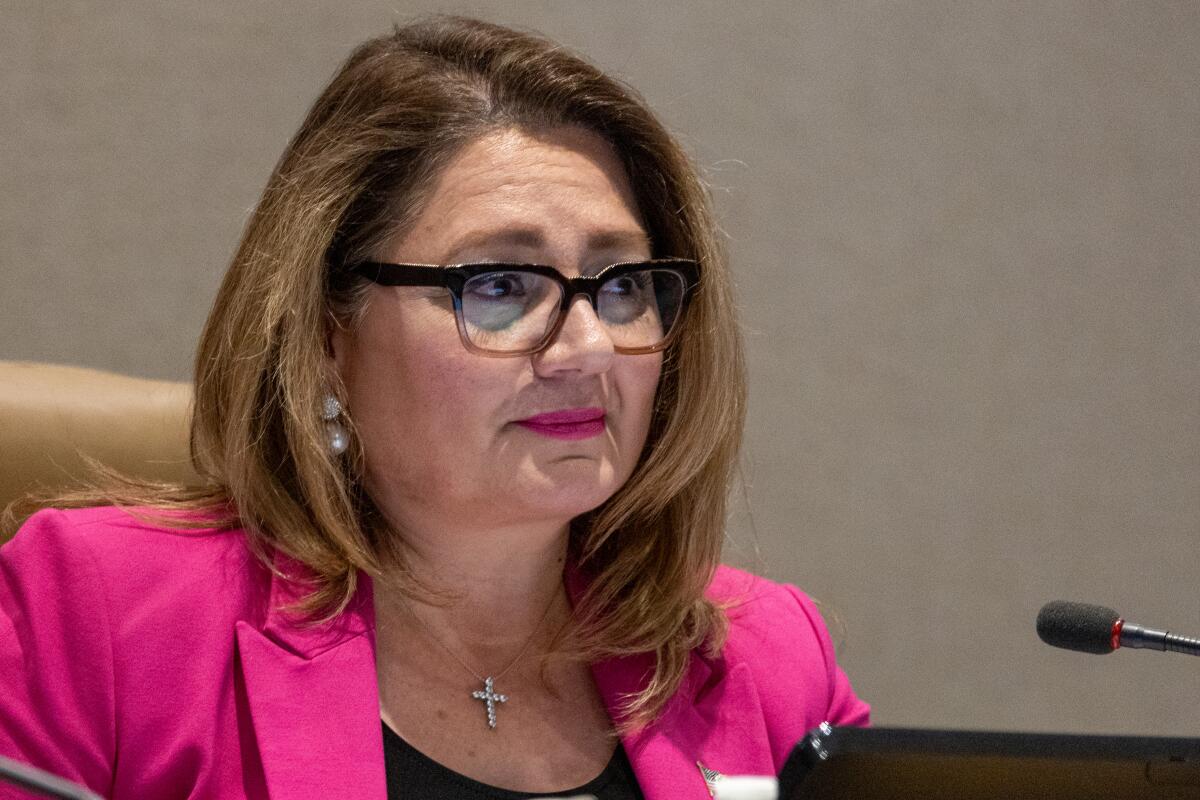U.S. deported gay asylum-seeker to country where homosexuality is illegal
DAKAR, Senegal — Being gay in Morocco is illegal and punishable by up to three years in prison. But it was the violence from her family that forced Farah, a 21-year-old gay woman, to flee the country.
After a long journey to the United States and a third-country deportation by the Trump administration, however, Farah said she is now back in Morocco and in hiding.
“It is hard to live and work with the fear of being tracked once again by my family,” she told the Associated Press, in rare testimony from a person deported via a third country despite having protection orders from a U.S. immigration judge. “But there is nothing I can do. I have to work.”
She asked to be identified only by her first name for fear of persecution. The AP saw her protection order and lawyers verified parts of her account.
Farah said that before she fled, she was beaten by her family and the family of her partner when they found out about their relationship. She was kicked out of the family home and fled with her partner to another city. She said her family found her and tried to kill her.
Through a friend, she and her partner heard about the opportunity to get visas for Brazil and fly there with the aim of reaching the United States, where they had friends. From Brazil, she trekked through six countries for weeks to reach the U.S. border, where they asked for asylum.
“You get put in situations that are truly horrible,” she recalled. “When we arrived [at the U.S. border], it felt like it was worth the trouble and that we got to our goal.”
They arrived in early 2025. But instead of finding the freedom she envisioned, Farah said she was detained for almost a year, first in Arizona, then in Louisiana.
“It was very cold,” she said of detention. “And we only had very thin blankets.” Medical care was inadequate, she said.
She was denied asylum, but in August she received a protection order from a U.S. immigration judge, who ruled she cannot be deported to Morocco because that would endanger her life. Her partner, denied asylum and a protection order, was deported.
Farah said she was three days from a hearing on her release when she was handcuffed by Immigration and Customs Enforcement and put on a plane to an African country she had never visited, and one where homosexuality is illegal: Cameroon. She was put in a detention facility.
“They asked me if I wanted to stay in Cameroon, and I told them that I can’t stay in Cameroon and risk my life in a place where I would still be endangered,” she said. She was flown to Morocco.
Most deportees had protection orders
She is one of dozens of people confirmed to be deported from the U.S. by the Trump administration to third countries despite being granted legal protection by U.S. immigration judges. The actual number is unknown.
The administration has used third-country deportations to pressure migrants who are in the U.S. illegally to leave on their own, saying they could end up “in any number of third countries.”
The detention facility in Cameroon’s capital of Yaounde, where Farah was held, currently has 15 deportees from various African countries who arrived on two flights, and none is Cameroonian, according to lawyer Joseph Awah Fru, who represents them.
Eight of the deportees on the first flight in January, including Farah, had received a judge’s protection orders, said Alma David, an immigration lawyer with the U.S.-based Novo Legal Group who has helped deportees and verified Farah’s case. The AP spoke to a woman from Ghana and a woman from Congo, who both said they had protection orders, speaking on condition of anonymity for fear of retaliation.
Another flight Monday brought eight more people. Three freelance journalists reporting on the deportations to Cameroon for the AP were briefly detained there.
Deporting people to a third country where they could be sent home was effectively a legal “loophole,” said David.
“By deporting them to Cameroon, and giving them no opportunity to contest being sent to a country whose government hoped to quietly send them back to the very countries where they face grave danger, the U.S. not only violated their due process rights but our own immigration laws, our obligations under international treaties and even DHS’ own procedures,” David said.
The U.S. Department of Homeland Security earlier confirmed there were deportations to Cameroon in January.
“We are applying the law as written. If a judge finds an illegal alien has no right to be in this country, we are going to remove them. Period,” it said, and asserted that the third-country agreements “ensure due process under the U.S. Constitution.”
Asked about the deportations to Cameroon, the U.S. State Department on Friday told the AP it had “no comment on the details of our diplomatic communications with other governments.” It did not reply to further questions.
Cameroon’s Foreign Ministry didn’t respond to a request for comment.
‘Impossible choices’
Farah was one of two women from the first group of deportees to return to Morocco.
“They were given two impossible choices,” David said, asserting that claiming asylum was not clearly presented as one of them. “This was before the lawyer had access to them.”
She said International Organization for Migration staff in the facility did not give them any indication that there was a viable option other than going back to their home countries.
Fru said he has not been granted access to the deportees. He said the assistant to the country director for the IOM, a U.N.-affiliated organization, told him he must apply to speak to them. Fru plans to do that Monday.
The IOM told the AP it was “aware of the removal of migrants from the United States of America to some African countries” and added that it “works with people facing difficult decisions about whether to return to their country of origin.” It said its role is providing accurate information about options and ensuring that “anyone who chooses to return does so voluntarily.”
The IOM said the facility in Yaounde was managed by the authorities in Cameroon. It did not respond to further questions.
African nations are paid millions
Cameroon is one of at least seven African nations to receive deported third-country nationals in a deal with the U.S. Others include South Sudan, Rwanda, Uganda, Eswatini, Ghana and Equatorial Guinea.
Some have received millions of dollars in return, according to documents released by the State Department. Details of other agreements, including the one with Cameroon, have not been released.
The Trump administration has spent at least $40 million to deport about 300 migrants to countries other than their own, according to a report released last week by the Democratic staff of the Senate Foreign Relations Committee.
According to internal administration documents reviewed by the AP, 47 third-country agreements are in various stages of negotiation.
In Morocco, Farah said, it was hard to hear U.S. officials refer to people like her as a threat.
“The USA is built on immigration and by immigrant labor, so we’re clearly not all threats,” she said. “What was done to me was unfair. A normal deportation would have been fair, but to go through so much and lose so much, only to be deported in such a way, is cruel.”
Pronczuk writes for the Associated Press.







